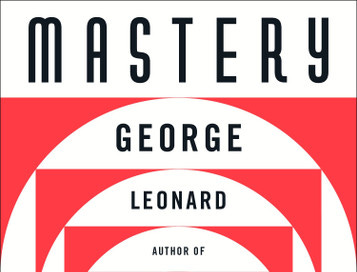Today at a glance:
Mastery by George Leonard = all you need to know + hot take on why these insights matter
Weekly snippets = podcast with Andrew Wilkinson, why long-term dev plans don’t work, nostalgia about early days Stripe
Taking a shot at your question= “how do you build strong connective tissue within an organization so Eng <> Product <> Ops are all talking to each other”
Mastery by George Leonard is a hyper simple book that stood the test of time.
Key takeaways:
To master X you must enjoy practice for the sake of practice. You must learn to love the plateau.
America is waging a war against mastery via excessive consumer spending. How? Quick fixes and immediate gratification is an anti-mastery mentality. Climax upon climax in media. The people “we” celebrate are overnight sensations. Where is the plateau?
There are no experts. Only learners.
There are 5 keys to master: (1) instruction, (2) practice, (3) surrender, (4) intentionality, (5) edge.
Change !== homeostasis. Be aware of how homeostasis works. It is present in all systems.
How do you get energy to master X? (1) stay fit, (2) acknowledge the negative, (3) set your priorities [to achieve X you may need to sacrifice 1-X], and above all (4) take action and stay on the path.
My favourite quote = “To be a learner, you’ve got to be willing to be a fool”.
Let’s think about this.
How does this concept of loving the plateau, grinding, and/or being comfortable with being a fool maps against what society is telling us is success? You must achieve XYZ in ABCD timeframe or else you are taking too long. You must have a perspective on X or else you are uninformed. Wrong! Embrace the grind.
Your thoughts?
3 weekly snippets:
Interesting podcast with Andrew Wilkinson on the Knowledge Project. The part I found the most interesting is at @19:08 mark where Andrew talks about his mental model for hiring CEOs. Suggest listening at the min to that segment. Check it out here.
Why long-term plans don’t work is a great simple read from Lucas Costa on why estimates for dev projects will be off. #1 proposed solve is to just make shorter plans. Easy, right? Recommend reading this classic if you want to go deeper on this topic.
A nostalgic blog about early days at Stripe by Brie Wolfson made the rounds last week. Brie talks about the intensity, the care, the devotion to the mission. You read this and you feel the energy. It’s electric. It is cultish in a good way. If you’ve had the opportunity to work at a healthy early stage startup - you know the feeling. Over the last 5 years I’ve put a lot of thought into culture, incentives, “work-life-balance”, mission-driven teams, and I am still thinking through it. Pandemic changed a # of things about how we work and our relationship to work. I am not sure whether we know how all of this will settle out, but at the core I feel the same as Brie.
I’m all for creating healthy boundaries that keep us satisfied and emotionally healthy—inside and outside of work. And of course I believe you can love something without it having to hurt. But I’ve never truly loved anything that didn’t move me to my core. I can’t help but wonder if all this effort we’re putting into keeping work at arm’s length is actually holding us back from being our best selves - Brie Wolfson
Someone responded to the welcome email (A+ by the way) and asked “how do you build strong connective tissue within an organization so Eng <> Product <> Ops are all talking to each other?” Curious to know what others think.
Here are 2.5 quick things that worked for me:
This isn’t a solve, but a question hence the 0.5. Why is there no connective tissue? Is it not in our culture to over communicate/share? Is leadership not setting the right precedent? Are there emotional reasons from the teams (ex. territorial, other fears)? Understanding this will help get the right solve. Now 2 solutions in a vacuum.
Establish a brain trust. Borrowed this from Ed Catmull - co-founder of Pixar. Brain trust is a group of people who come together to solve tough problems. So we set a bi-weekly 30min principled meeting with the right people from Eng/Product/Ops and we handle tough problems. Participants must be truth seeking, must be aligned on the northstar, and must embrace constructive debate. Key thing is that there is no authority meaning the owners of each function must engage, but they do not have to act on feedback. They are trusted to do the right thing and to handle the matter with their strike teams.
Drive the change yourself until it becomes 2nd nature. How?
Have 1v1s with the leads and encourage them to communicate more. Let them know how much their POV matters and how others appreciate the clarity.
Ask leading questions in public where answers plug the holes in communication. It doesn’t matter if we know the answer. We are doing this for the team. We are building behaviors.
Publically celebrate those who are communicating well. There are many practices/rituals you can build to instill a culture of gratitude and public praise that will cement the importance of over communication. And yes, I am convinced that over communication and ambient signaling in teams is more important than ever. Those who take the time to do it are worth a lot to the business and to the culture.
That’s it! Have a stellar weekend - whatever that means to you. Maybe it’s enjoying the plateau ;)






Awesome newsletter George - will look up Mastery for sure!